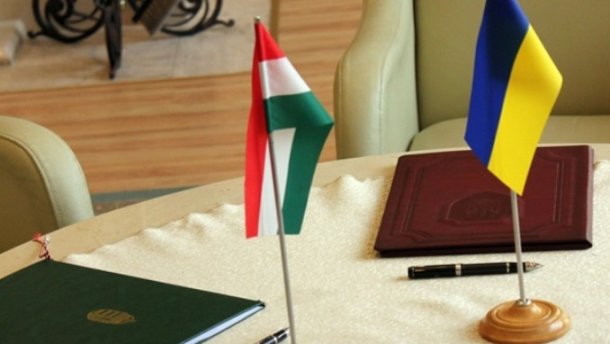
Ukraine and Hungary Move to Settle Differences Over National Minority Legislation (Part One)
Ukraine and Hungary Move to Settle Differences Over National Minority Legislation (Part One)
Kyiv and Budapest have initiated an effort to resolve their differences over the impact of Ukrainian language and education laws on the Hungarian national minority in Ukraine’s Carpathian province (see EDM, June 3).
Budapest’s position is based on a sui generis conception of Hungarian national community entitlements in Carpathian Ukraine. Versions of that conception also apply to Hungary’s kin communities in other neighboring countries. Budapest, however, has exacerbated its controversy with Ukraine by injecting this problem into the North Atlantic Treaty Organization’s (NATO) high-level deliberations. Since late 2017, Hungary has been blocking NATO-Ukraine meetings at the presidential, ministerial and flag-officer levels, jeopardizing NATO-Ukraine cooperation programs amidst the Russia-Ukraine war. That said, there are no indications of coordination between Budapest and Moscow and no grounds for suspicion in this regard.
To generate pressure on Ukraine to fall into line with that conception, Budapest seeks, in effect, to misuse NATO and divert it from its purposes (not overly ambitious in the first place) regarding Ukraine. Hungary’s political leaders seem oblivious to the risk that their tactics may set a precedent whereby other NATO member countries would inject parochial issues into the Alliance unrelated to its mandate and missions. For its part, the North Atlantic Alliance collectively takes the position that this dispute is only for Hungary and Ukraine to settle bilaterally. Yet, NATO’s consensus-based decision-making has left the Alliance with no choice but to accept Budapest’s veto against senior-level meetings with Ukraine (see EDM, July 30, 2018 and November 7, 2019).
The controversy over Carpathian Hungarian minority entitlements can also complicate Ukraine’s position in the context of the European Union. As an EU-aspirant country, Ukraine must in its own interest accept Brussels’ assessments of Ukrainian domestic legislation and policies. EU institutions, among them the European Parliament’s advisory Venice Commission on Democracy Through Law, would be loath to side with one EU member country against another member country, but might deem unproblematic politically to go along with an EU country’s perspective against that of a non-member. Furthermore, current notions of multiculturalism in Western Europe may complicate the understanding of Ukraine’s nation- and state-building tasks. As a latecomer to statehood, Ukraine must of necessity focus on the national language and education, as was the case everywhere in Europe earlier, during the state-building phase.
While Ukraine is keen to overcome the two-and-a-half-year-old stalemate at NATO, Hungary cannot be comfortable with that stalemate either, as initial Hungarian objectives remain unfulfilled. Meanwhile, Budapest interprets the political changes in Ukraine as having brought to power a “less nationalistic” president and parliamentary majority. Consequently, Budapest sees an opportunity to secure certain entitlements for the Hungarian national community on school education, language use and, possibly, the legalization of dual citizenship in Ukraine. The Hungarian government proposes to attain these objectives by agreement between Kyiv on one side and the Carpathian Hungarian representatives and Budapest on the other side.
Both Kyiv and Budapest now seem to envisage possibilities for normalizing relations on two tracks: Ukrainian accommodation of some Hungarian national minority grievances, in correlation with Budapest’s support for economic and infrastructure programs in Ukraine’s Hungarian-inhabited Carpathian districts (see EDM, June 3). The linkage is implicit but fairly apparent on both sides.
Hungary’s complaints have centered on three Ukrainian legislative acts:
– Ukraine’s Law on Education, a framework law adopted in September 2017, and seized upon by Budapest to raise the ante at the diplomatic level and at NATO.
– Ukraine’s Law on Ensuring the Functioning of the Ukrainian Language as the State Language, adopted in April 2019 and promulgated the following month. It enshrines Ukrainian as the lingua franca in the legal and the practical sense for the first time in the nation’s history. At the same time, it guarantees the free public use of the languages of Ukraine’s national minorities, as well as the official languages of the European Union. The Hungarian language qualifies on both of these counts, alongside the Romanian, Bulgarian and Polish national minority languages in Ukraine (see EDM, May 16, 2019).
– Ukraine’s Law on Secondary-Level Education, adopted in January 2020, pursuant to the framework law on education (see above). Both of these laws ensure that the state language functions (as it does in any European state) as the main language of instruction, of graduation examinations and of admission tests, in secondary-level and vocational schools. However, here as well, scope is provided for elastic implementation, transitional periods, some exceptions, and possibilities for teaching one or several disciplines in one or more languages of European Union countries (including Hungarian—see above). This law is not about restricting the teaching of national minorities’ languages and culture as subjects in the curriculum. It is about ensuring that the other subjects are taught in Ukrainian as the language of instruction. Minority languages remain the languages of instruction in primary-level schools for national minorities (Ukrinform, January 16, 2020).
The Ukrainian government has changed three ministers of education in close succession in the last ten months. The current government will be taking the Venice Commission’s recommendations under serious consideration.


